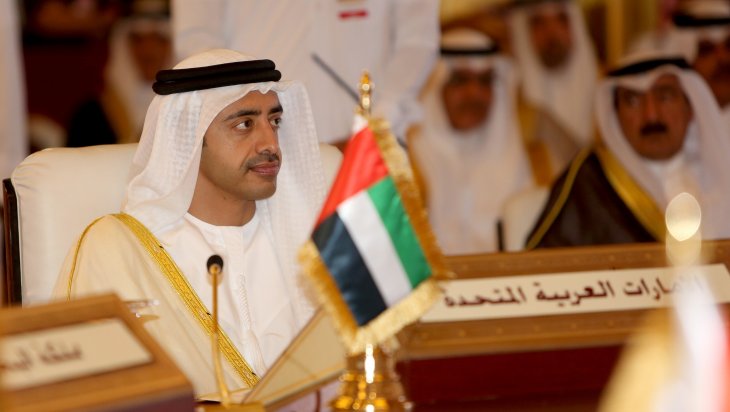Is there an Emirati agenda for Turkey?

Espionage Case
On 19th April, two intelligence operatives -who claimed to be working for the UAE- have been detained in Istanbul. The Turkish National Intelligence and the Istanbul Chief Public Prosecutor’s Office conducted the operation. The intelligence operatives said that they were gathering information on Arab dissent and Turkey on behalf of the UAE. Turkish authorities are now assessing whether one of the intelligence operatives has links to the murder of Jamal Khashoggi in October 2018. Turkish authorities also accused the intelligent agents of military, political and international espionage against Turkey.
It has been reported that the intelligence operatives were of Palestinian origin. What is interesting is that still no process has been initiated by the UAE aiming to contact with the Turkish authorities through either the UAE Embassy and or the UAE Consulate. Purportedly, the Turkish Foreign Ministry has not received any demand for information by the UAE. To say that there has been no interaction between the two governments about this issue does not mean that the UAE social media trolls were silent about it. The social media trolls possibly working for the UAE have spread fake news relying on the propaganda that Turkey now detains the Gulf citizens arbitrarily.
What makes this counter-intelligence event even more interesting was the suicide of one of the intelligence operatives in his cell in Silivri, İstanbul. His death raised concerns about the content and the extent of the intelligence operation. For now, it seems that the tensions stirred by the geopolitical intersections between the UAE and Turkey have scaled up with this intelligence issue. Up until now, Turkey maintains its position on the subject and handling it professionally.
Deteriorating relations in the regional context
This latest development is not surprising given the tone of the relations between the UAE and Turkey. Across the Middle East and North Africa, the UAE has engaged in destabilizing activities after the Arab Spring. These activities have primarily caused deteriorating relations between the UAE and Turkey as the former supported military coups, and the latter supported Arab democracies. It is no surprise that the relations between the United Arab Emirates (UAE) and Turkey have gradually deteriorated particularly after the coup attempt on 15th July 2016. Back then, tensions had heightened quickly amid rumors that one Muslim country may have financed the bloody coup attempt. Soon after, Turkish Foreign Minister Mevlut Cavusoglu hinted the UAE as this Muslim country.
Along with setting the mood for the 2013 coup in Egypt and waging war against Islamist movements throughout the Middle East, the UAE continues to engage in destabilizing activities recently. Among these are arms-smuggling and systematic torture in extra-judicial prisons in Yemen, using advanced technologies for hacking rival policymakers and figures, launching an embargo on Qatar, supporting the YPG/PYD in Syria, aiding the Sudanese Military Council who overthrew Omar al-Bashir, and actively participating in the war in Libya on the side of Libyan warlord Khalifa Haftar. After supporting autocrats such as Abdel Fattah es-Sisi and Haftar, the current target of the UAE seems to be Sudan. Ensuring that democracy will not flourish there, the UAE and Saudi Arabia have already made an effort to take the issue in their hands.
The Emirati disposition to destabilize the Middle East and undermine democracy is becoming more evident day by day. A recent example of this is the UAE’s involvement in Libya. Along with supporting un-checked warlord Haftar, the UAE is actively participating in the conflict using drones and by providing logistical and intelligence assistance to Libyan warlord.
The UAE media outlets display an antagonistic attitude toward Turkey. Embodying an anti-Ottoman, anti-democratic and anti-Islamist attitude in foreign policy, the UAE high-level officials despised the Ottoman legacy and tried to undermine the Turkish role in the Middle East in general.
This Emirati agenda for Turkey upset the diplomatic relations between the two countries as well. On December 2017, the UAE FM Abdullah bin Zayed Al Nahyan retweeted a tweet condemning Ottoman governor Fahreddin Pasha of committing crimes against people and being a thief. Upon this move, the UAE FM was condemned by Turkish Presidential Spokesman Ibrahim Kalin and by Turkish President Recep Tayyip Erdoğan. Another heathy exchange between the UAE and Turkey was provoked by Anwar Gargash who claimed that “Turkey and Iran won't lead the Arab world.” Labeling Turkey as a regional rival, the UAE officials try to gain ground in foreign policy.
Amid tensions inflamed by the counter-intelligence issue, another severe blow to the UAE-Turkey relations came on the 30th of April. In what seems to be a tit-for-tat for the espionage issue, the UAE’s Supreme Federal Court upheld life imprisonment on a Turkish citizen. A 49-year-old Turkish citizen was accused of colliding with Al-Nusra and Ahrar Al-Sham terrorist groups, and the UAE courts rejected his appeal. This is not the first time the UAE blatantly used life imprisonment as a way of political gain and probably will not be the last.
This decision by the UAE has raised concerns over whether the UAE is a safe place for Turkish citizens, particularly in this environment. Another conclusion is that this immediate move by the UAE authorities may account for a response for the capturing of the intelligence operatives by Turkey. Although the UAE has not acknowledged that the intelligence was being gathered for them, it is inevitable, with the decision to uphold Turkish citizen’s imprisonment, that the UAE wanted to respond to Turkey in this way.









